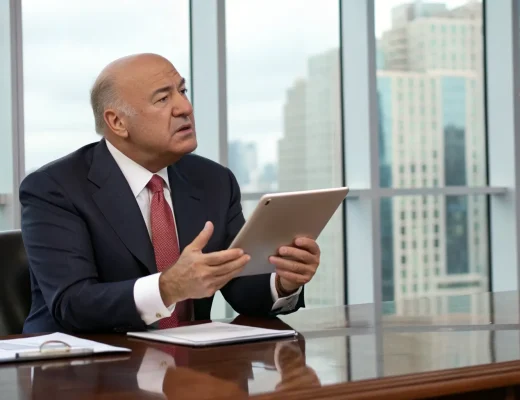Mexican exports to the United States have plummeted following the implementation of
50 percent tariffs, forcing businesses and government officials to search for alternative solutions from unexpected sources. The severe trade restrictions have created an economic crisis for Mexican exporters who rely heavily on the US market.
The dramatic drop in cross-border trade has sent shockwaves through Mexico’s export-dependent economy, with manufacturers, agricultural producers, and service providers all feeling the impact. As traditional trade channels face unprecedented obstacles, stakeholders are exploring innovative partnerships and previously overlooked markets.
Economic Impact of the Tariffs
The 50 percent tariffs represent one of the most significant trade barriers imposed on Mexican goods in recent history. Economic analysts report that sectors particularly affected include automotive manufacturing, electronics, textiles, and agricultural products – all key components of
Mexico’s export economy.
Data from Mexico’s economic ministry shows that the value of exports to the US has dropped by half since the tariffs took effect, representing billions of dollars in lost revenue. This decline has triggered layoffs in manufacturing hubs along the border and in industrial centers nationwide.
“The impact has been immediate and severe,” said an industry representative from Mexico’s manufacturing association. “Companies that were operating on thin margins simply cannot absorb a 50 percent price increase and remain competitive in the US market.”
Seeking Unconventional Allies
In response to the crisis, Mexican
business leaders are forming alliances with previously untapped partners. Some manufacturers have begun collaborating with competitors to share shipping costs to alternative markets. Others are working with academic institutions to develop new products for non-US consumers rapidly.
The government has also taken unusual steps, including:
Mexican policymakers have reached out to counterparts in Canada, the European Union, and
Japan to discuss potential trade agreements that could help offset losses from the US market. These discussions represent a significant
shift in Mexico’s trade strategy, which has historically been centered on its northern neighbor.
Domestic Market Development
Another strategy emerging from the crisis is a renewed focus on Mexico’s internal market. Government officials have launched programs to strengthen domestic supply chains and encourage Mexican consumers to purchase locally-made products.
Small and medium-sized businesses that previously focused exclusively on exports are now developing products for domestic consumers. This pivot requires significant adjustments to marketing strategies, distribution networks, and even product specifications.
“We never considered the domestic market as a primary focus,” explained a textile manufacturer from Puebla. “Now we’re redesigning our business model to appeal to Mexican consumers while we wait for the international situation to improve.”
The crisis has also accelerated digitalization efforts as
businesses look to e-commerce platforms to reach new customers both domestically and internationally. Online marketplaces have reported a surge in Mexican vendors seeking to bypass traditional export channels.
While these adaptations show promise, economic
experts caution that they cannot fully replace the massive US market in the short term. The depth of economic integration between the two countries, built over decades of trade agreements, means that finding equivalent alternatives will require sustained effort and significant structural changes to Mexico’s economy.
As negotiations continue at the diplomatic level, businesses across Mexico are demonstrating
remarkable adaptability in the face of extraordinary challenges, though the long-term effectiveness of these measures remains to be seen.







